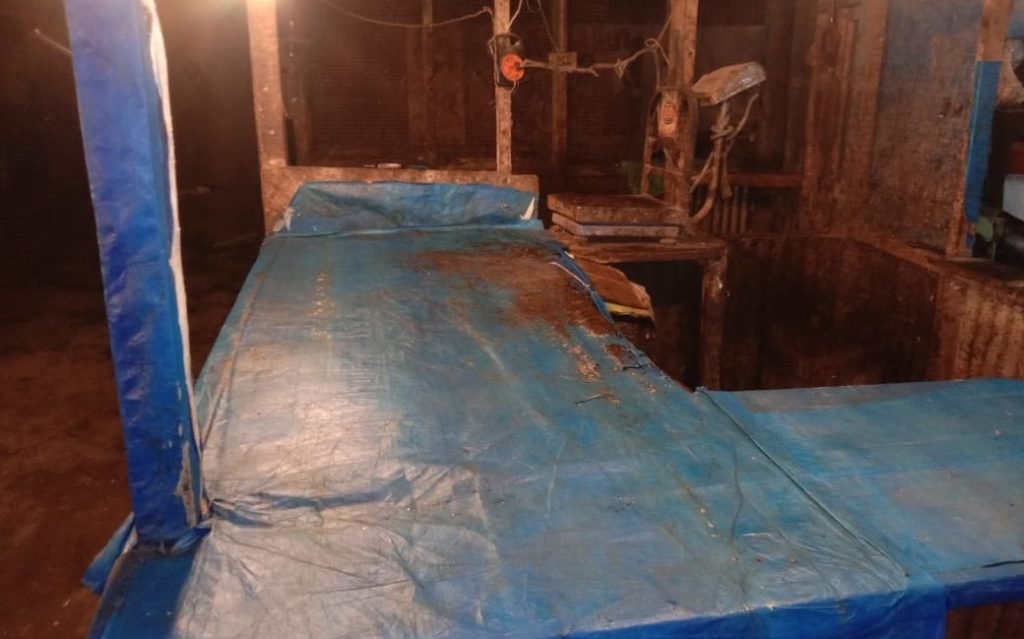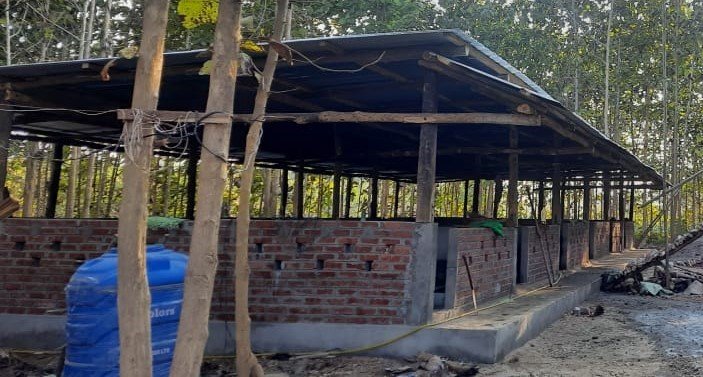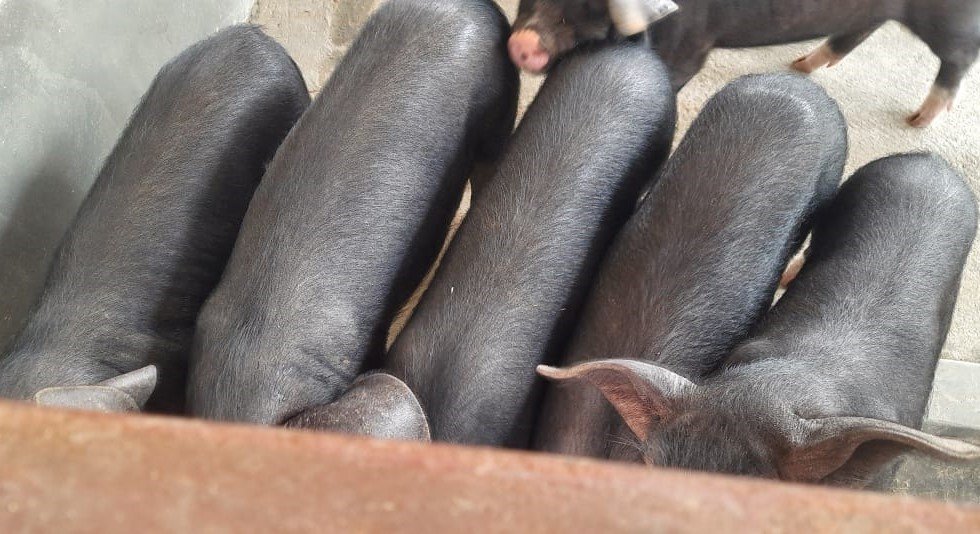It is said that the North-eastern states of India consumes about 70 per cent of the country’s total domestic pork production, with Nagaland topping the list as the highest consumer of pork. However, the pork production in the NE states does not meet its demand and therefore they are dependent on other states.
The outbreak of African Swine Fever (ASF) in 2020 devastated the highly promising piggery industry in Northeast India.
Effect of ASF Outbreak in NE India
Assam, the state with the highest pig population in the country, was reportedly the worst affected with over 40,000 pig deaths while in Mizoram, over 33,000 pigs died due to ASF.
ASF outbreaks were also reported in some parts of Nagaland, Meghalaya, Arunachal Pradesh and Tripura.
According to the Hindu Business Line, “A double whammy of Covid and African Swine Fever (ASF) has taken a toll on the ₹11,000 crore pork and pig-rearing industry in Assam.”
In Nagaland, Government piggery farms have been devastated by ASF due to which many pigs died and many more culled.
Ban on transport of Live Pigs by Assam
Two and a half years after the tragedy, the Government of Assam extended the ban on the transportation of live pigs on 10 March 2023. Assam government however lifted the restrictions on intra-district and inter-district transportation of live pigs.
Download Nagaland Tribune app on Google Play

Response of Nagaland Pork Market to Assam Ban
The ban on transportation of live pig by Assam had evoked strong reaction specially from Pork Butchers Union Dimapur (PBUD). The union enforced their own ban on pigs from Assam and closed pork butcher shops in Dimapur in protest against the Assam government’s move.

(Pork Shop during closure by PBUD)
It even intercepted and seized one pickup truck.
PBUD also appealed to the state government to address the issue saying that the imposition of ban was bad not only for pork business community in the State but also for the public in general.
Rise in Retail Price of Pork
After failing to get any response from the government of Nagaland, PBUD decided to open all the pork butcher shops and allow sell of pork starting May 8 at higher rate since the state government had failed to address their issues.
PBUD president stated that its members were facing numerous problems since selling of pork meat was their only source of income.
They also mentioned that it would not be possible to sell pork meat at the rate fixed by DMC, as the wholesale price in Assam ranged from Rs 240-250.

A pork shop in Kohima after resumption of sale
Taking to Nagaland Tribune, a pig trader in Kohima, who trades around 40-50 pigs per week in his chain of 4 pork retail shops, said that the rates in Assam has gone so high as Assam government has stopped transportation of pigs from outside Assam.
He added that at present, they are selling at Rs 300 per kg with little profit margin, just to keep the supplies flowing and to keep the shops open. He added that in some areas, pork cost has increased to Rs 350 per kg and that they might have to do that if Assam government does not lift the ban on transportation of live pigs through the state.

A pig farm in Chümoukedima
Pig Farmers sees Opportunity
While butchers and pork shop owners face an economic challenge, the ban of transportation of live pigs has found support from pig farmers.
A pig farmer in Dimapur, who has a batch of 50 pigs, sounded optimistic on the prospects of pig farming in the present scenario. He said that with high input costs, it becomes difficult to with imported pigs in terms of cost. To have a large-scale farming means competing with states where input costs are much lower as feed prices are almost 50% lesser than in Nagaland.
The Farmer is of the opinion government should notify not only the ban but the ban period too. If Assam Government does not notify the ban period, Government of Nagaland should ban inter-sate transport of live pigs and also notify the period, which should be at least 2 years or more, the period it takes to establish a farm, he said.
He said that people will invest in piggery on a large scale only if the period of ban on transportation of live pigs is notified.

Ato, a small-time pig farmer, said that the demand of piglets for rearing is very high. All piglets gets booked right after they are born and fetches Rs 6500 per piglet in Kohima. He said that the ban on transport of live pigs is good as it will give the pig farmers a better market. He added that it will decrease the risk of deadly diseases.
As per Ato, there is no chance a pig farmer will lose money if vaccination is done timely and the farmer is hard working.
Veterinary Department Ready to Reach-Out to Entrepreneurs
A department official on condition of anonymity said that veterinary department is doing its best to encourage commercial farming of pigs. He said that the department is doing all it can to encourage entrepreneurship in commercial piggery. He added that the department facilitated loan subsidy scheme of about Rs four crore last year alone.
Entrepreneurs should come forward and invest big money in large scale pig farming, he added. He said that though backyard piggery is very good for subsistence, it cannot grow into business.
Nagaland’s Demand for Pork
In Nagaland the annual demand of pork is estimated to be about 60000 metric tonnes of pork.
The state produces about 30000 metric tonnes and is deficit by almost 50 percent, which is met mainly by import of live pigs from Punjab, Haryana & southern states.
Government Infrastructure & Institutions
Nagaland has the required institutional set-up to transform its livestock industry, especially piggery.
The State government has many piggery breeding farms spread across the state in places like Wokha, Tuensang, Phek, Chümoukedima etc.
Nagaland also has its own veterinary and agriculture college.
Nagaland also has ICAR research centre at Medziphema, which apart from research on mithun also engages in piggery and poultry sectors.
The Challenge and Opportunity
Assam Government’s pro-active stance to ban transport of live pigs and poultry with an objective to prevent spread of deadly diseases is also a tool to support its farmers to grow. It is good for the NE region. Assam is also a deficit state in pork production. Hence it is a win-win situation and not an economic rivalry.
Whether the government can come up with a policy to incentivize or assure entrepreneurs to invest in large scale pig farming remains to be seen.
A boom in the piggery sector will create a lot of jobs directly and indirectly, have a huge impact on the primary GDP of the state while also increasing circulation of money within the state.
If Nagaland takes this opportunity to boost entrepreneurship in the livestock industry through pro-active policy initiatives and measures, a genuine sustainable circular economy may develop in the sector.

